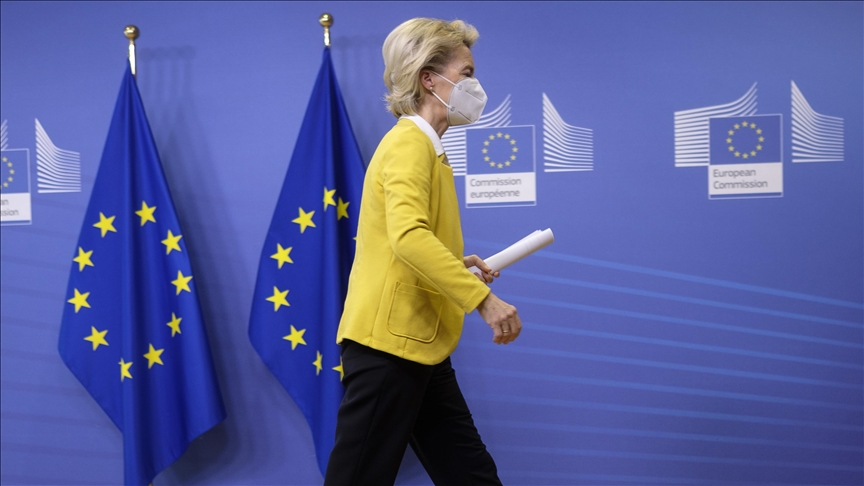European Union leaders have dashed Kiev’s demand for an accelerated membership of the bloc over the Russia-Ukraine conflict, with leaders declining to open a membership procedure at the time of war.
As talks among the 27 national leaders ended early this morning, Croatia Prime Minister Andrej Plenkovic said no country has entered the European Union overnight.
Dutch Prime Minister Mark Rutte said “there is no fast-track process,” while adding that the bloc would continue deepening ties with Kiev.
“Can we open a membership procedure with a country at war? I don’t think so,” French President Emmanuel Macron said, calling for caution over what he called the balance points in that region.
Macron also said that the war in Ukraine “is going to lead us to completely redefine the structure of Europe.”
Over 2 million people have fled Ukraine since Russia launched its “special military operation” against the country.
Some EU leaders pushed for tougher sanctions against Russia’s oil and gas industries in spite of European reliance on Russian fossil fuels.
European Commission President Ursula von der Leyen said the EU should stop using Russian fossil fuels by 2027, adding that she would propose a roadmap for that in mid-May.
But Hungarian Prime Minister Viktor Orban said the EU will not impose sanctions on Russian gas or oil.
“The most important issue for us has been settled in a favorable way: there won’t be sanctions that would apply to gas or oil, so Hungary’s energy supply is secure in the upcoming period,” Orban said in a video posted on his Facebook page on Friday.
‘All contact with Chernobyl lost’
Ukraine has told the International Atomic Energy Agency (IAEA) that all contact with the Chernobyl nuclear power plant has been lost.
It comes a week after Russian forces took over the nuclear power plant, the scene of the world’s worst nuclear accident in 1986.
The IAEA said all communications between staff at the plant and Ukrainian regulatory authorities were lost “the day after the Russian-controlled site lost all external power supplies.”
IAEA director-general Rafael Grossi told reporters in Vienna on Thursday that the agency had “scheduled physical inspections” of Ukraine’s nuclear facilities.
He said the IAEA has a “number of remote monitoring devices” in operation.
“We are trying to make sure that we will not have again added suffering because of any radioactive release or anything having to do with nuclear facilities,” he added.
‘Russian army convoy dispersed’
According to satellite images taken on Thursday, a huge Russian military convoy stationed outside Kiev last week appears to have dispersed.
Maxar Technologies, a US-based company, said satellite images showed that the 64km (40-mile) line of vehicles, tanks, and artillery has broken up and been redeployed.
It said armored units were maneuvering in and through the surrounding towns close to the Antonov airport, northwest of Kiev.
Some of the vehicles have moved into forests, Maxar said, adding that the images also show convoy elements further north have repositioned near the town of Lubyanka with towed artillery howitzers in firing positions nearby.
The development comes amid reports that Russian forces have reached the northeastern edge of the Ukrainian capital.
Russia’s Defense Ministry said on Friday that Russian-backed separatists have captured the Ukrainian city of Volnovakha, a strategically important city located north of the besieged Azov Sea port of Mariupol, the RIA news agency reported.
‘$100 bn in Ukraine assets destroyed’
A Kiev government official said on Thursday that the military conflict has so far destroyed about $100 billion in roads, bridges, and businesses in Ukraine, dealing a huge blow to the country’s economy.
“Currently around 50 percent of our businesses are not operating, and those which are still operating are not operating at 100 percent,” said Oleg Ustenko, chief economic advisor to Ukrainian President Volodymyr Zelensky.
“The situation in terms of economic growth is going to be really very depressing, even if the war immediately stops,” he said in a virtual speech to the Peterson Institute for International Economics.
Ustenko urged European countries to boycott Russian oil and natural gas, saying while European nations rely on Russian energy for heat, “I can assure you it’s much, much, much colder in the underground of Ukraine where the people are hidden.”
Russia has said that its “special military operation” against Ukraine is intended to disarm the country and unseat leaders it calls neo-Nazis.
Source: Pars Today



























